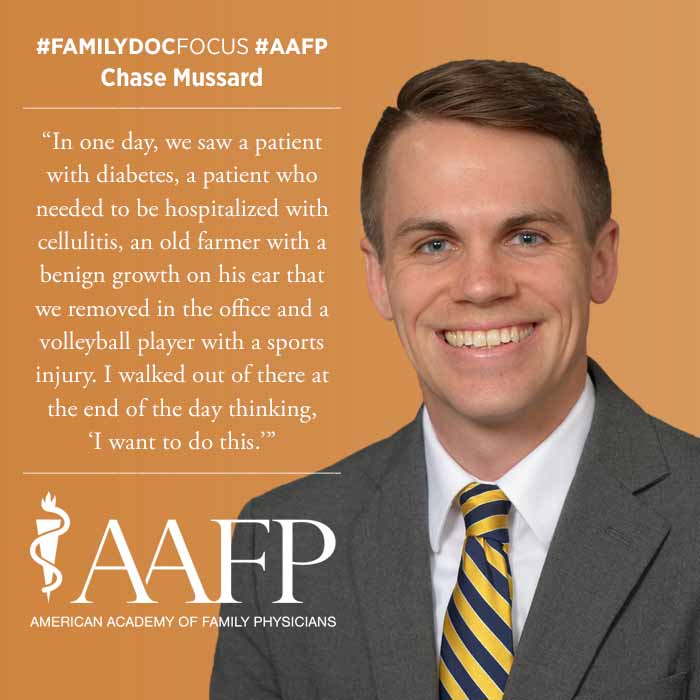Med Student Leader Helps Peers Find Family Medicine Path
January 13, 2020 03:58 pm David Mitchell – Growing up in a small Tennessee town, Chase Mussard and his family members had little doubt where they needed to go when they didn't feel well -- regardless of their ailments.
"Everyone in my family sees a family doctor," said Mussard, a fourth-year medical student at East Tennessee State University's Quillen College of Medicine. "I saw our family doctor when I had stomach issues. When my sister had debilitating jaw pain, she saw our family doctor. When my mom had a lump in her breast that she thought might be cancer, she saw our family doctor. When my dad had depression, he saw our family doctor. He took care of all of us. I was predisposed to family medicine."
Despite that predisposition, Mussard initially didn't plan to attend medical school. With a love of science, he thought research might be his future. He earned a Bachelor of Science degree in chemistry at ETSU, where he also was on the track and cross-country teams.
"Fortunately, I had great mentors as an undergraduate," he said, "and they told me, 'You aren't going to like working in a lab. You like talking to people. You should consider medical school.'"
His mentors introduced him to Ty Webb, M.D., and Mussard spent a week at the family physician's office in rural Sparta, Tenn. It was his first clinical experience.

"In one day, we saw a patient with diabetes, a patient who needed to be hospitalized with cellulitis, an old farmer with a benign growth on his ear that we removed in the office and a volleyball player with a sports injury," he said. "I walked out of there at the end of the day thinking, 'I want to do this.' It was exciting to see so many things and to see how much his patients loved him and how much he loved them."
Mussard stayed at ETSU for medical school, where he found family medicine mentors such as family medicine chair and professor Reid Blackwelder, M.D., and professor and director of medical education Jason Moore, M.D.
"There's a strong tradition of family medicine at ETSU," he said. "They got me involved in leadership. I wouldn't be where I am without people who built me up and supported me. I want to do the same for other students."
Mussard recently completed a term as the AAFP's Family Medicine Interest Group Network regional coordinator for the Mid-Atlantic. He now is the national coordinator of the FMIG network, which met earlier this month at AAFP headquarters in Leawood, Kan., for orientation and leadership development with the new regional coordinators.
"This role is great," he said. "I get to work with first- and second-year students and draw their interest up," he said.
Mussard said FMIGs are important not only to help increase student choice in family medicine but also to "help medical students understand family medicine's role and its importance" even if they ultimately match in another specialty.
Mussard also is working as faculty and a presenter for a preconference workshop that will be offered by the AAFP Jan. 30 as part of the Society of Teachers of Family Medicine Conference on Medical Student Education in Portland, Ore. The workshop will be a chance for faculty and staff advisers who guide student groups such as FMIGs to network and share best practices.
Mussard hopes to eventually be medical school or residency faculty himself. He recently wrapped up his Match interviews and hopes to work in an academic setting when his training is complete.
"It was a fantastic, fun experience," he said, "meeting residents and faculty who are so passionate about what they are doing."